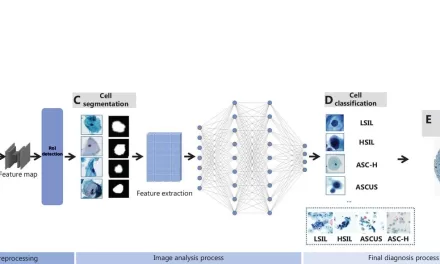University of Pittsburgh Scientists Unravel Resistance Mechanisms and Pave the Way for Personalized Therapy
In a groundbreaking study published today in Nature Communications, researchers from the University of Pittsburgh shed light on why metastatic uveal melanoma, a rare and aggressive form of cancer, is resistant to conventional immunotherapies. Moreover, they unveil a promising avenue for treatment through adoptive therapy, which involves cultivating a patient’s T cells outside the body before reintroducing them, showing success in combating this formidable disease.
Led by senior author Dr. Udai Kammula, the team elucidates that while T cells do infiltrate metastatic tumors in uveal melanoma patients and become activated, they remain dormant due to suppressive elements within the tumor microenvironment. Adoptive therapy emerges as a solution to revive these suppressed cells, offering hope to patients facing limited treatment options.
“Uveal melanoma has long been regarded as a ‘cold’ cancer, impervious to immune interventions. Our research challenges this notion by demonstrating that T cells within the tumors possess the potential to combat cancer but are restrained by the tumor’s suppressive mechanisms,” stated Dr. Kammula, associate professor of surgery at Pitt and director of the Solid Tumor Cell Therapy Program at UPMC Hillman Cancer Center.
Metastatic uveal melanoma, originating in the eye’s uveal tract, tends to spread aggressively, often to the liver, presenting formidable challenges in treatment and prognosis. Unlike cutaneous melanoma, which responds favorably to immune checkpoint inhibitors, conventional immunotherapies have shown little efficacy against uveal melanoma until now.
In a previous study published in The Lancet Oncology, Kammula’s team employed adoptive therapy on 19 uveal melanoma patients, yielding partial or complete regression of cancer in 35% of cases. This success underscored the presence of tumor-infiltrating lymphocytes (TILs) in uveal melanoma, contrary to previous assumptions. However, the ineffectiveness of immune checkpoint inhibitors in treating the disease remained a mystery.
Capitalizing on a decade-long endeavor to amass the largest repository of uveal melanoma samples, the researchers conducted an in-depth analysis of tumor characteristics. By examining 100 metastases from 84 patients and employing single-cell RNA sequencing, they identified the presence of activated TILs within the tumors. However, these cells remained quiescent within the tumor microenvironment.
To address the variability in patient response to adoptive therapy, the researchers developed a novel clinical tool termed Uveal Melanoma Immunogenic Score (UMIS). UMIS integrates data from over 2,000 genes expressed by tumor cells and immune cells, providing a comprehensive assessment of the tumor’s immunogenicity. Patients with higher UMIS scores exhibited better responses to adoptive therapy, indicating UMIS’s potential as a predictive biomarker.
“We envision UMIS as a crucial tool in tailoring therapies for metastatic uveal melanoma, sparing patients from futile treatments and invasive procedures,” remarked lead author Dr. Shravan Leonard-Murali, a post-doctoral fellow in the lab.
The implications of this research extend beyond uveal melanoma, as Dr. Kammula and his team explore its application in tackling other challenging cancers, such as pancreatic cancer. Additionally, efforts are underway to develop a pan-cancer version of UMIS, offering insights into patient responses across diverse cancer types.
This groundbreaking study, supported by UPMC Enterprises and various research institutions, marks a significant step towards personalized therapies for metastatic uveal melanoma, offering renewed hope to patients battling this formidable disease.












